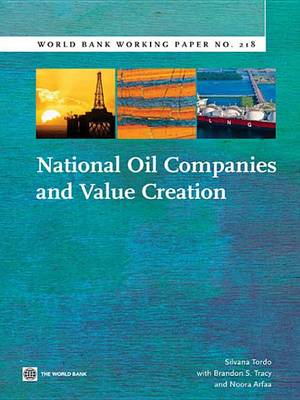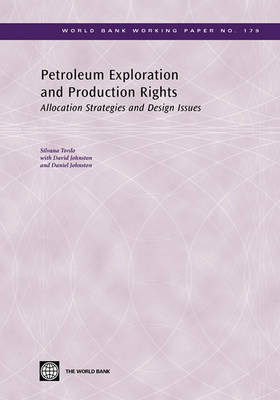World Bank Working Paper
3 total works
National Oil Companies and Value Creation
by Silvana Tordo and Brandon S Tracy
Published 13 July 2011
Approximately two billion dollars a day of petroleum are traded worldwide, which makes petroleum the largest single item in the balance of payments and exchanges between nations. Petroleum represents the larger share in total energy use for most net exporters and net importers. While petroleum taxes are a major source of income for more than 90 countries in the world, poor countries net importers are more vulnerable to price increases than most industrialized economies. This paper has five chapters. Chapter one describes the key features of upstream, midstream, and downstream petroleum operations and how these may impact value creation and policy options. Chapter two draws on ample literature and discusses how changes in the geopolitical and global economic environment and in the host governments' political and economic priorities have affected the rationale for and behavior of National Oil Companies' (NOCs). Rather than providing an in-depth analysis of the philosophical reasons for creating aNOC, this chapter seeks to highlight the special nature of NOCs and how it may affect their existence, objectives, regulation, and behavior. Chapter three proposes a value creation index to measure the contribution of NOCs to social value creation. A conceptual model is also proposed to identify the factors that affect value creation. Chapter four presents the result of an exploratory statistical analysis aimed to determine the relative importance of the drivers of value creation. In addition, the experience of a selected sample of NOCs is analyzed in detail, and lessons of general applicability are derived. Finally, Chapter five summarizes the conclusions.
'Petroleum Exploration and Production Rights: Allocation Strategies and Design Issues' is part of the World Bank Working Paper series. These papers are published to communicate the results of the Bank's ongoing research and to stimulate public discussion. Many governments rely on oil companies to efficiently exploit natural resources. Governments have the challenging task of deciding which companies should be awarded exclusive rights to explore, develop, and produce their petroleum resources, and on what conditions such rights should be awarded. This paper analyses the available evidence on the advantages and disadvantages of various systems used by petroleum-producing countries to allocate petroleum exploration, development, and production rights, and considers the policy implications of each system. The experience of six petroleum-producing countries is presented in detail, and numerous other examples are provided to derive lessons of wider applicability. The paper presents various conclusions for policy makers about the optimal design of allocation systems.


